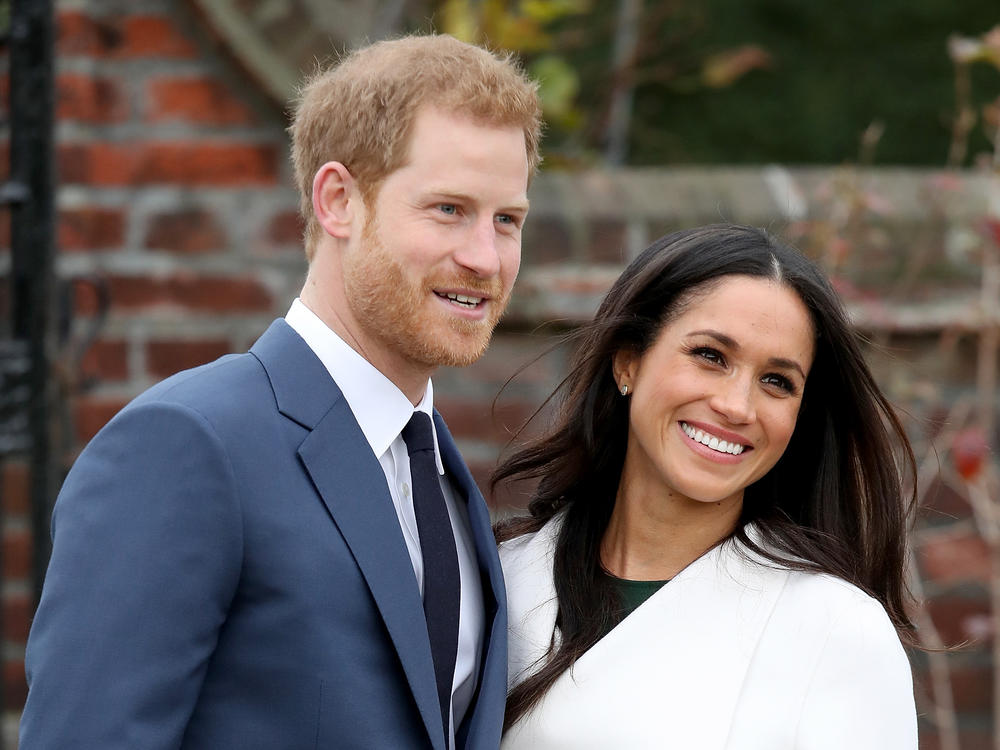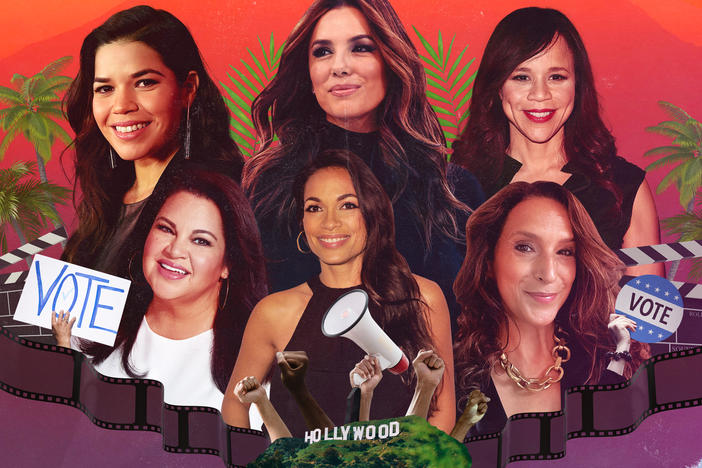Section Branding
Header Content
Here's what we learned from Harry and Meghan's Netflix documentary
Primary Content
Those expecting a juicy, revelatory tell-all about the royal family from Netflix's new docuseries Harry & Meghan, may be disappointed.
The first three episodes — focused on the romance, engagement and marriage of Meghan Markle and Prince Harry — treads carefully around criticisms of specific royals or individual actions. Instead, the opening installments of the series offer their personal story: an American actress from the TV show Suits meets the youngest son of Princess Diana in 2016 and forges an improbable, groundbreaking relationship.
There is, however, more generalized criticism here: In particular, over allegations the royal family failed to help Meghan learn the protocols of royal life and failed to intercede as she endured a torrent of racist stories in the press, because of her biracial heritage.
One tabloid headline, the series notes, proclaimed she was "straight out of Compton," a predominantly Black neighborhood in Los Angeles, though she had never lived there. Another said Harry had "gone gangster" by dating her. Harry felt his family shrugged off the impact of such stories too readily, affected by unconscious bias.
Calling out unconscious bias of the royals
For some of his relatives, Harry says, the bruising press coverage "was almost like a rite of passage. [They said] 'My wife had to go through that, so why should your girlfriend be treated any differently? Why should you get special treatment? Why should she be protected?'...I said, 'The difference here is the race element.'"
Later, in the third episode, Harry talks specifically about his own unconscious bias, admitting a 2005 scandal where he wore a Nazi soldier's uniform to a costume party was "one of the biggest mistakes of my life." But the docuseries handles such moments with a light touch, covering narrative ground at such a relentless pace, that it barely has time to explain before the story moves on.
If anything, the media itself gets the most sustained and direct criticism throughout the docuseries — particularly the gossip-focused tabloid press and especially the British tabloids. This is to be expected, given that Harry's mother died in a car crash while fleeing from paparazzi photographers.
Bruising tabloid press coverage exposed
The show seems aimed at an American — or at least non-British audience — explaining many things Britons may already know. This includes details on how the press covers the royals in England — including the pool of outlets focused on the family, called the "royal rota." Harry & Meghan describes essentially a devil's bargain the monarchy has made with the British tabloid press — identified as toxic arbiters of public opinion. Forced into performing for story-hungry tabloids, the royal family needs favorable coverage to maintain its high public approval ratings.
But such attention comes at a price: intrusion into their lives. We see Harry talking about how harsh coverage intensified after his mother separated from then-Prince Charles. Meghan says her neighbors were paid to put streaming cameras in her backyard after news broke that she was dating Harry.
As the docuseries progresses, we see the couple transformed from young lovers sneaking moments together under the nose of the world's press, to a more cautious pair who wind up hiring a security firm to plan how they move about, trained in special driving techniques to shake off pursuing photographers. Meghan is discouraged from smiling at or speaking cheerfully to the paparazzi for fear she would be portrayed as enjoying the attention.
One of her Suits co-stars revealed he was offered $70,000 to say he slept with her. An older half-sister she barely knew was quoted by media outlets saying disparaging things and threatening to write a tell-all book (that half-sister, Samantha Markle, did not appear on camera, but gave a statement to the show saying she had been misquoted by press in the past).
And days before the worldwide event of her wedding to Harry, Meghan saw reporting which alleged her father took money from media outlets to pose for photos. According to the docuseries, he cut off contact with her after the arrangement was revealed publicly, creating a huge scandal.
Their story, told from their point of view
All these events are presented from Harry and Meghan's perspective — featured in a docuseries created through their massive, multi-year deal with Netflix — bolstered by sources who seem largely friendly to the couple with lots of personal footage, including video diaries. There are no members of the royal family interviewed for the docuseries, though there is disagreement over whether Buckingham Palace was aware that producers were trying to reach them.
So, even as the docuseries offers an unprecedented look inside the story of a woman who married into the British royal family, it is undoubtedly framed from the couple's perspective — made with little sense of how a more objective source might view their information.
Still, it is a potent presentation. Particularly in another area where the docuseries delves deeply: race.
Tough truths about race
Harry & Meghan also spends a lot of time detailing how race works in Britain – outlining how conflicts over immigration issues have become a proxy for race in the country, how the country avoids talking about its past participation in the slave trade, how a lack of diversity in the tabloid press can contribute to stories rooted in prejudice and how racism often bubbles just beneath the surface in many interactions for people of color.
"One of the realities of life in Britain, is if you walk into a palace or a stately home, or any place that represents tradition, you are likely to be faced with racist imagery," says Afua Hirsch, an author who is a woman of color. She appears briefly in the show commenting about a member of the royal family who attended a lunch with Meghan while wearing a piece of racist jewelry called a "blackamoor brooch."
Another moment in the show features Black British people reacting with amazement and positivity over the possibility of a non-white woman joining the royal family. "Who dreamed that Britain would have a Black princess?" says David Olusoga, historian and author of the book, Black and British. "Could this be a moment in which, in essence, the royal family caught up with the rest of Britain?"
These notions, as laid out in Harry & Meghan, aren't particularly extreme or surprising. But they are already being met with sensationalism by some media outlets. One headline asserted that Markle called their engagement an "orchestrated reality show" (she was referring to the public announcement of it, including a BBC interview). Another in the Daily Mail reacted with alarm over the discussion of racism in British society.
Such excesses mostly prove the validity of the media criticism in Harry & Meghan, which presents a largely measured portrait of a young couple trying to navigate the outlandish pressures which have come from their connection to one of the most famous families on the planet.
With three more episodes due to drop Dec. 15 — expected to detail their wedding and decision to step back from royal duties — there is also likely more fodder to come for outlets determined to make the most sensational story out of their uniquely turbulent journey.
Copyright 2022 NPR. To see more, visit https://www.npr.org.
Bottom Content




